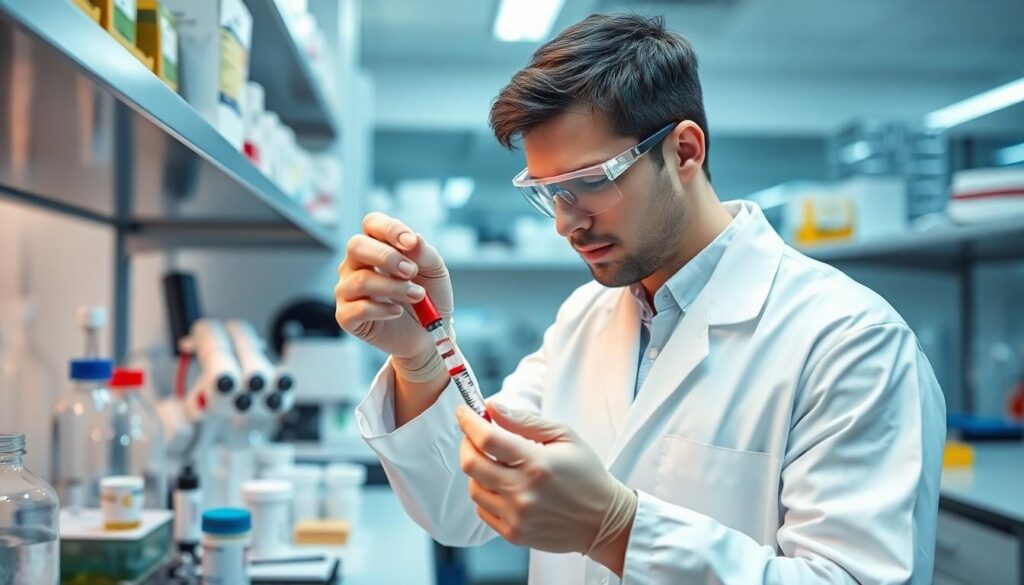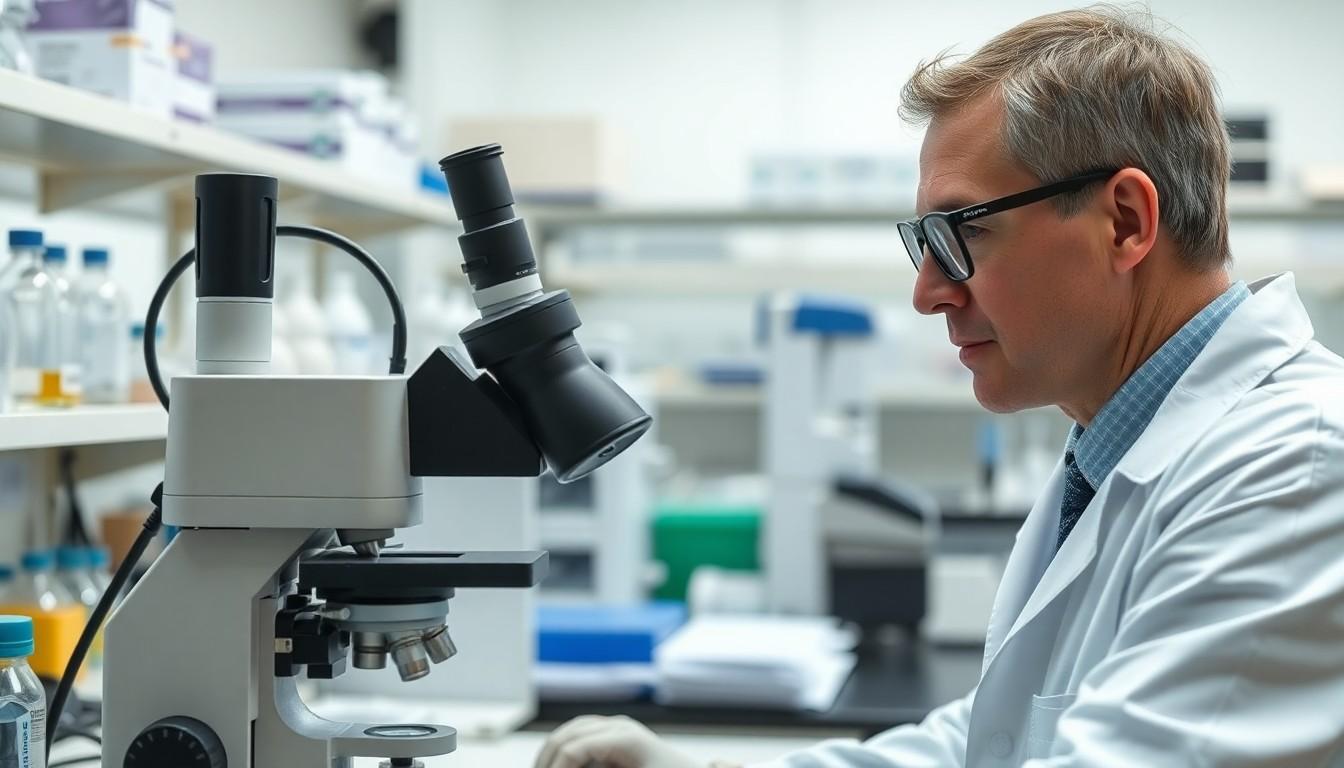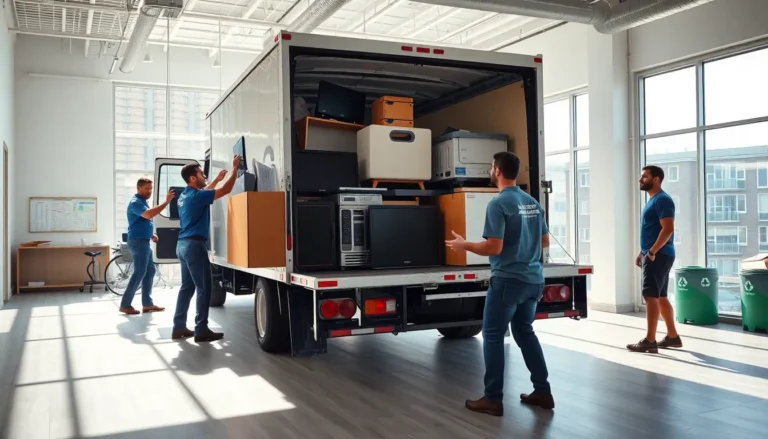Ever wondered what goes on behind the scenes in a lab? While some might picture mad scientists in white coats, the real heroes are lab techs. These unsung champions ensure that experiments run smoothly, samples are analyzed, and results are reliable. They’re like the Swiss Army knives of the scientific world—equipped with tools, knowledge, and a knack for problem-solving.
Table of Contents
ToggleOverview of Lab Technicians
Lab technicians play a vital role in various scientific fields. They handle sample preparation, manage equipment, and conduct experiments, ensuring quality and accuracy throughout the process. Effective data collection forms a fundamental part of their responsibilities, allowing for reliable analysis and reporting.
In clinical laboratories, technicians perform tests on body fluids, blood, and tissue samples. They apply specific methodologies and adhere to protocols to guarantee consistent results. Routine maintenance of laboratory instruments falls under their purview, as well; they troubleshoot any issues that may arise during testing.
Environmental labs utilize technician skills to test air, water, and soil samples for contaminants. Precise record-keeping is paramount, as it allows for compliance with regulatory requirements. They collaborate with scientists to interpret data, which contributes to significant findings and advancements.
Quality control is essential for lab technicians. They implement safety measures to prevent contamination and ensure the accuracy of experiments. Continuous training keeps technicians updated on the latest techniques and technologies in their field.
Organizational skills are crucial, as lab technicians manage multiple tasks and prioritize workloads effectively. Communication skills also come into play, especially when discussing results with colleagues and presenting findings to stakeholders. Their contributions enhance overall productivity and reliability in laboratory settings.
Daily Responsibilities of a Lab Tech

Lab technicians tackle various responsibilities daily, ensuring laboratory operations run smoothly. Their tasks range from sample collection to equipment management, vital for accurate scientific outcomes.
Sample Collection and Preparation
Techs gather samples from patients or environments, ensuring proper techniques for contamination prevention. Blood, urine, and other body fluids require careful handling to maintain integrity. After collection, samples undergo preparation processes, including labeling and aliquoting, which facilitate precise testing. Following established protocols, lab technicians adhere to standards that guarantee reliable results. Collaborative efforts with other healthcare professionals enhance the efficiency of sample collection.
Equipment Operation and Maintenance
Lab technicians operate advanced scientific instruments vital for experiments. They conduct routine checks to ensure equipment functions properly, addressing any maintenance issues that arise. Calibration processes ensure accuracy in data collected, reinforcing the reliability of test results. Technicians manage supplies and inventory, preventing disruptions in workflow. Troubleshooting equipment issues requires keen problem-solving skills, yet training keeps techs informed on the latest procedures.
Key Skills Required for Lab Technicians
Lab technicians require a blend of technical and interpersonal skills to excel in their roles. Mastering these skills enhances their effectiveness in various laboratory settings.
Technical Skills
Technical skills are fundamental for lab technicians. They must operate complex instruments like spectrophotometers and centrifuges, ensuring accurate measurements. Proficiency in laboratory techniques such as PCR and chromatography is essential for task execution. Familiarity with software for data analysis allows for quick interpretation of results. Additionally, understanding safety protocols keeps the lab environment secure. Technicians must also maintain equipment, performing troubleshooting when issues arise. Attention to detail is crucial, as even minor errors can significantly impact outcomes. Skills in sample handling and preparation play a vital role in achieving reliable test results.
Interpersonal Skills
Interpersonal skills facilitate effective communication among lab technicians and their teams. Collaboration with scientists and other personnel ensures coherent workflow alignment. Active listening fosters understanding of instructions and feedback. They need the ability to articulate complex data clearly to colleagues and supervisors. Time management skills help technicians prioritize tasks during busy shifts. Teamwork enhances problem-solving capabilities when challenges arise in experiments. Building strong relationships with peers also contributes to a positive lab environment, reinforcing professional support and knowledge sharing. Adaptability in various team dynamics further aids technicians in navigating their workplace effectively.
Education and Certification Requirements
Lab technicians typically require an associate’s or bachelor’s degree in a relevant scientific field. Community colleges and universities offer programs focused on laboratory technology, biology, chemistry, or related subjects. Enrolling in accredited programs provides foundational knowledge necessary for effective lab work.
Certification enhances job prospects and expertise. Various organizations, such as the American Society for Clinical Pathology (ASCP) and the National Credentialing Agency for Laboratory Personnel (NCA), offer certification exams. Certification usually involves meeting educational requirements and passing an exam, ensuring that technicians demonstrate proficiency in essential skills.
Continuing education remains vital in this field to maintain certification and stay updated on advancements. Technicians often participate in workshops and seminars focused on new technologies or methodologies. Regulatory bodies frequently outline specific continuing education requirements for maintaining various certifications.
Certain states mandate additional licensure for lab technicians, further ensuring standards for practice. Understanding state-specific guidelines is crucial for compliance, as regulations can differ significantly. Interested individuals should check state health department websites for precise information about licensure requirements.
Internships or clinical experiences often provide hands-on training in real-world settings. Participating in these opportunities allows individuals to apply theoretical knowledge and gain familiarity with laboratory procedures. Practical experience develops critical skills and enhances candidates’ readiness for employment.
Overall, education and certification requirements establish a strong foundation for lab technicians. These qualifications directly contribute to practitioners’ effectiveness in ensuring laboratory accuracy and reliability.
Career Opportunities and Advancement
Career opportunities for lab technicians span various sectors, including clinical settings, environmental research, and pharmaceutical companies. Advancement options typically include moving into supervisory roles, specialized fields, or transitioning into related areas like laboratory management or biomedical research. Becoming a senior lab technician often requires additional certifications and years of experience.
Certification agencies such as the American Society for Clinical Pathology (ASCP) offer pathways for career growth by providing credentials that signify expertise in specific laboratory techniques. Specialized training programs can lead to roles in molecular diagnostics or cytotechnology, opening doors to more advanced positions. Additionally, pursuing a bachelor’s degree may enhance prospects for those seeking leadership roles or teaching opportunities.
Lab technicians can also develop subject matter expertise, positioning themselves as vital resources within their organizations. Networking within professional associations helps build connections that can lead to job openings and collaborative opportunities. Engaging in continued education, such as workshops or conferences, can enhance skills and allow technicians to stay informed about industry advancements.
Potential salaries for lab technicians vary based on experience, location, and area of specialization. According to the Bureau of Labor Statistics, median annual wages for medical and clinical laboratory technologists reached approximately $54,000, while those in research settings may earn higher salaries due to demand for their specialized skills.
Overall, dedication to professional development, networking, and pursuing advanced education forms the backbone of career advancement for lab technicians. These elements combined with technical expertise ensure that they can make significant contributions to their respective fields.
Lab technicians are essential to the scientific community, providing critical support that underpins research and testing. Their expertise in sample preparation and equipment management ensures that laboratories operate smoothly and efficiently. With a strong focus on accuracy and quality, they play a pivotal role in various fields, from clinical testing to environmental analysis.
As the demand for skilled lab technicians continues to grow, pursuing education and certification becomes increasingly important. This not only enhances their career prospects but also contributes to the overall reliability of laboratory results. By fostering a commitment to continuous learning and professional development, lab technicians can elevate their contributions and advance their careers in this dynamic field.






